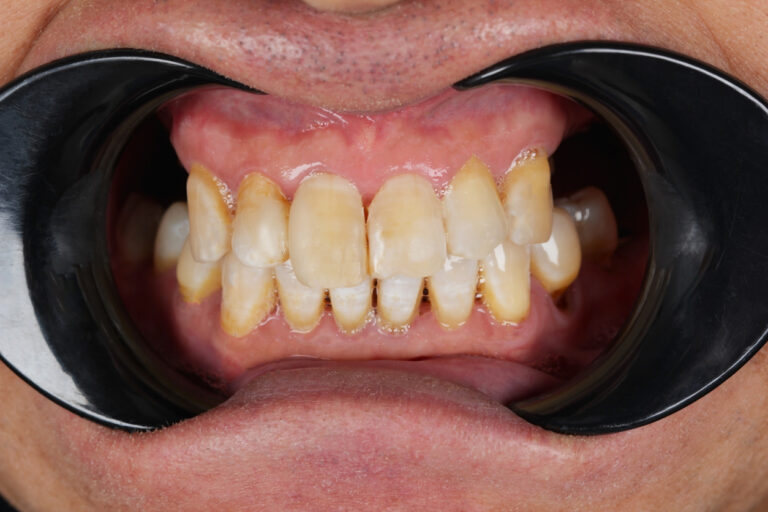How Often Should You Visit the Dentist for Cleanings?
It’s one of the most common questions people ask when it comes to dental care: how often should you visit the dentist for cleanings? The general rule of thumb is to see your dentist every six months for a routine cleaning and check-up. However, multiple factors can influence this recommendation, ranging from personal dental hygiene habits, to age, to specific health conditions. Understanding these factors can help tailor the frequency of your visits to meet your individual needs and maintain optimal oral health.
Why Regular Dental Cleanings Are Important
Regular dental cleanings are crucial because they prevent cavities and gum disease, preserve tooth enamel, and freshen your breath. Despite daily brushing and flossing, plaque—a sticky film of bacteria—can build up on your teeth and harden into tartar, which can only be removed by a dental professional. If left unchecked, this tartar accumulation can lead to gum disease and potentially tooth loss. Therefore, professional cleanings are an integral part of a comprehensive dental health regime.
In addition to removing tartar, your dentist will also assess your overall oral health during your cleaning appointment. This includes checking for signs of cavities, gum disease, and oral cancer. Early detection of these issues can lead to more effective treatment and management, reducing the risk of more severe complications down the road.
Factors Influencing the Frequency of Dental Visits
Age and Dental Development
The need for more frequent dental visits can increase during certain stages of life. For children and teens, regular cleanings are critical because their teeth are still developing, and they might not be as vigilant with their oral hygiene as adults. These visits allow dentists to monitor the development of the teeth, ensuring they are growing healthily and in the correct alignment.
Personal Dental Hygiene Habits
Your daily oral hygiene routine plays a significant role in determining how often you need to visit the dentist. If you’re diligent about brushing twice a day, flossing daily, and using mouthwash, you may be able to stick to the twice-a-year schedule. However, if your at-home care is lackluster, more frequent visits may be necessary to prevent cavities and gum disease.
Health Conditions and Medications
Some health conditions and medications can affect your oral health and necessitate more frequent dental cleanings. Conditions such as diabetes, heart disease, and those that lead to dry mouth can increase your risk of dental problems. Additionally, medications that decrease saliva production can heighten the risk of cavities and gum disease, requiring additional dental care. In these cases, your dentist might recommend an individualized schedule to ensure your mouth remains healthy.
Smoking and Alcohol Consumption
Both smoking and alcohol can have detrimental effects on oral health, increasing the risk of gum disease, tooth decay, and oral cancer. If you smoke or consume alcohol frequently, visiting your dentist more often for screenings and cleanings can help mitigate these risks and promote better long-term dental health.
The Role of Periodontal Maintenance
For individuals with a history of gum disease, regular dental cleanings become even more crucial. Periodontal maintenance, which involves more frequent cleanings below the gum line to remove plaque and bacteria, is essential for controlling infections and preventing the progression of gum disease. Understanding the importance of periodontal maintenance encourages commitment to a structured dental visit schedule that can save your gums and teeth for the long term.
When You Might Need More Frequent Cleanings
Plaque and Tartar Build-Up
Extra build-up of plaque and tartar might require additional cleanings throughout the year. Some individuals naturally produce more plaque, or have alignment issues that make certain areas difficult to clean properly, leading to increased tartar formation. In these cases, more frequent cleanings might be necessary to ensure oral health remains intact.
Restorative Dental Work
If you’ve had significant dental work completed, whether it’s fillings, crowns, bridges, or implants, maintaining them requires regular dental care. These restorations need to be checked periodically to ensure they’re secure, functional, and not contributing to new oral health problems.
Oral Surgery and Special Treatments
Patients who have undergone oral surgery, such as extractions or other procedures by the best oral surgeon in Bowie, MD, might need more frequent post-op checks to ensure proper healing and to prevent infection. Specialists recommend these additional visits to safeguard your recovery and overall oral hygiene.
What to Expect During a Dental Cleaning
During a routine dental cleaning, your dentist or dental hygienist will first conduct a physical exam of your entire mouth, checking for inflammation, decay, or any other potential issues. Once the exam is complete, they will use special tools to remove deposits of tartar from your teeth. After scaling, they will polish your teeth to remove any surface stains. A flossing check will follow to remove any lingering debris, and sometimes a fluoride treatment may be administered to provide extra protection for your teeth.
Addressing Dental Anxiety
For those who feel anxious about dental visits, sedation options such as nitrous oxide (commonly known as laughing gas) can be considered. This sedation method is light and easily manageable, allowing for relaxation during the procedure. If you wish to know more about this sedation technique, you can find out here.
Creating a Personalized Dental Cleaning Schedule
Ultimately, creating a dental cleaning schedule tailored to your needs is best done in consultation with your dentist. Regular cleanings and exams are foundational to maintaining excellent oral health. However, depending on your specific circumstances, your dentist might recommend a different frequency for check-ups and cleanings. By working together, you can devise a plan that helps you maintain healthy teeth and gums, ensuring that they serve you well throughout your entire life.
If you’re ever unsure about how often you should visit the dentist, it’s always a good idea to discuss with your dentist directly. They consider your oral health history, lifestyle habits, and any ongoing health conditions to make the most appropriate recommendations for your dental care regimen.
Remember, preventive care is one of the most effective methods of maintaining good oral health, and regular dental cleanings play a crucial role in this effort. By staying proactive, you can ensure your smile remains bright and healthy for years to come.
For more health tips and advice on maintaining optimal dental health, feel free to visit our site ecomentors.ca where we share additional resources and insights.

